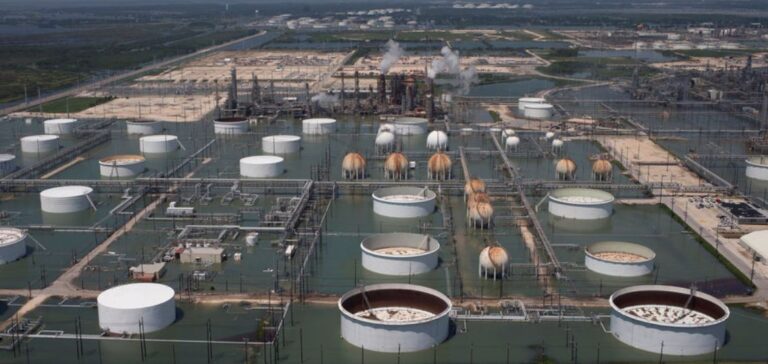Recent data from the Energy Information Administration (EIA) reveal a surprising increase in US crude oil inventories for the week ending August 9, 2024.
Reserves rose by 1.4 million barrels, reaching 430.7 million, while experts were anticipating a drop of 2 million barrels.
This increase contrasts with the six consecutive weeks of decline observed previously, disrupting market expectations.
The increase is attributable to a reduction in exports at the beginning of the month, combined with increased refinery activity.
The refinery capacity utilization rate rose slightly to 91.5%, compared with 90.1% the previous week.
Despite this rise, inventories remain 5% below the five-year average for this period.
Reducing gasoline reserves and maintaining demand
At the same time, gasoline reserves fell by 2.9 million barrels, more than the 1.4 million barrels forecast.
This reduction is explained by still buoyant domestic demand, as the summer travel season draws to a close with the start of the new school year and Labor Day just around the corner.
This buoyancy in gasoline consumption continues to support the market, despite an uncertain global economic context.
Crude oil production, meanwhile, declined slightly, dropping 100,000 barrels a day to 13.3 million barrels a day, still close to historical records.
Demand for refined products also rose slightly, with average weekly deliveries of 20.52 million barrels per day, albeit down year-on-year.
Impact on oil prices and outlook
The publication of this data had an immediate impact on oil markets.
The price of a barrel of West Texas Intermediate (WTI) for September delivery fell by 0.65%, stabilizing at 77.83 dollars.
Similarly, Brent North Sea crude for October delivery fell by 0.40% to $80.36.
These price fluctuations reflect investors’ adjustments to new data, against a backdrop of persistent geopolitical tensions.
The unexpected increase in inventories, combined with sustained demand, has left markets in a position of uncertainty. US production remains high, and future EIA reports will be scrutinized to anticipate market movements, particularly as the winter months approach and with the evolution of US exports.
Market players will have to navigate a complex environment in which the stability of domestic demand and export dynamics will play a crucial role in shaping prices and inventories.
The market’s ability to absorb these variations will be decisive for the short-term prospects of the energy sector.





















